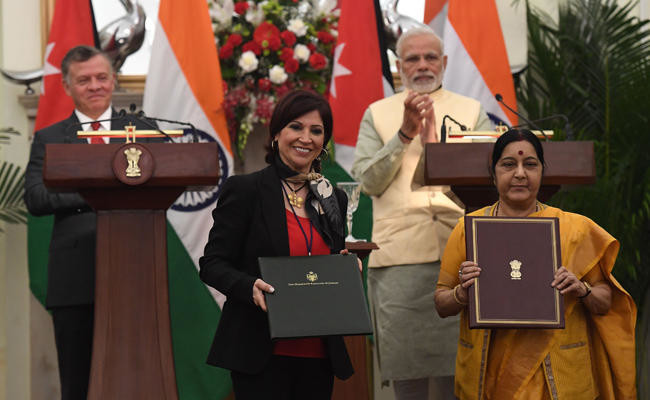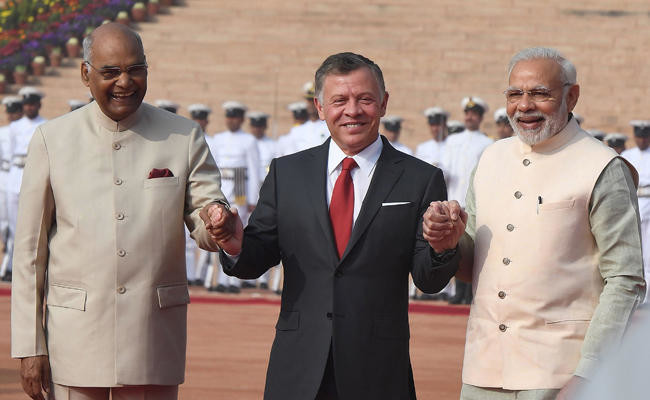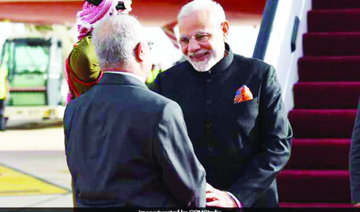NEW DELHI: India and Jordan have agreed to strengthen cooperation across a wide range of areas, including defense and health, capping a three-day visit by the king of Jordan that highlighted India’s increasing focus on the Middle East.
King Abdullah’s first visit to India in more than a decade came hard on the heels of Indian Prime Minister Narendra Modi’s stopover in Amman on his way to Palestine.
Modi broke with protocol to welcome King Abdullah on his arrival in New Delhi on Feb. 27, greeting him with a characteristic hug.
India relies on the Gulf and Middle East for oil and remittances from more than 8 million Indian citizens who live there. Yet New Delhi has for several years lacked a serious policy on the region, experts say. That is starting to change under the Modi government.
“There is a greater realization on the part of the Indian government in the past three years that we need to give due attention to links with western Asia, and there needs to be a greater focus on energy security,” said Dr. Meena Singh Roy, head of the West Asia Center at the Institute for Defense Studies and Analyses in New Delhi.
“This trip and the prime minister’s recent trip through Amman are about recognizing the importance of Jordan in the region and about India wanting to play a greater role,” she said.
Ashok Sajjanhar, India’s former three-time ambassador, said that New Delhi was finally realizing that the Middle East and Gulf were important regions that warranted close ties.
“We’re living in a fast-changing global order where Russia has once again emerged as a global power and has replaced the US,” said Sajjanhar. “With China entering in a big way through its One Belt One Road project, we need to protect our interest in the region.”
Experts agree the Jordanian ruler’s visit to India will boost bilateral relations.
“Because of the uncertainty in the region, Jordan also is looking for stable partners and it finds the Indian model attractive,” Sajjanhar said.
“India is a rising power and its global clout is increasing. It is also a growing market, and if Jordan can tap into the Indian economy, that works for them as well.”
Apart from defense and cybersecurity, the two countries signed agreements focusing on cooperation in health, information technology, and setting up mining and production of phosphate in Jordan for use by India.
King Abdullah, who was accompanied by a business delegation, took part in a round-table meeting with business leaders on Wednesday, followed by an India-Jordan business forum.
He also visited India’s leading engineering school, the Indian Institute of Technology Delhi, to discuss a collaboration with technical institutes in Jordan.


















